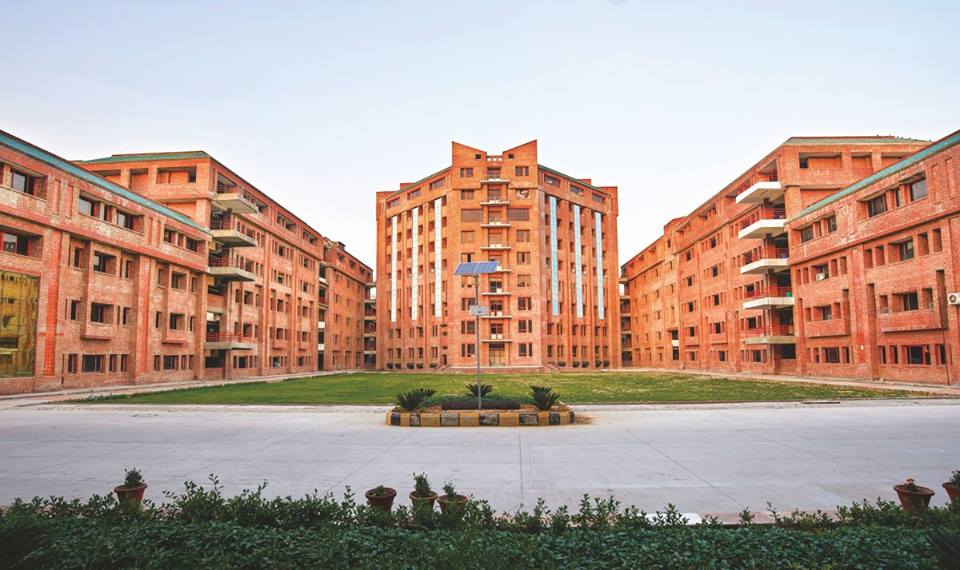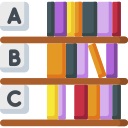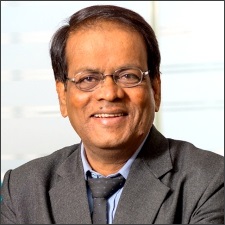
Sharda University School of Engineering and Technology
|
View of Sharda University School of Engineering and Technology Greater Noida |
|
|
University/College Type |
Private |
|
Established In |
2009 |
|
City |
Greater Noida |
|
Approval |
AICTE Approved |
|
Accepted Exams for Admission |
|
|
Total Courses |
4 Courses |
|
College Facilities |
AC Classrooms, Auditorium ,Cafeteria, Hostel, Labs, Library, Medical Facilities, Shuttle Service, Sports Complex, ATM, Medical, Wi-Fi Campus, Laundry Service, Campus in Call Center, Restaurant, Grocery Store, |
|
Placement Details |
Highest Package – 1 Cr |
|
Website |
https://www.sharda.ac.in/ |
Sharda University is a State Private University located in Greater Noida, Uttar Pradesh and established in the year 2009. The University approved by UGC, COA, BCI, INC, PCI and recognized by MCI, DCI and NCTE. It is also a proud member of AIU and ACU. Sharda University offers various Diploma, Undergraduate, Postgraduate and Research level programs in the multiple fields of study.
School of Engineering and Technology (SET) is one of the departments of Sharda University, which open platform for diverse voices where teaching runs parallel to the real world and student groomed to join the global workforce. SET distinguished as one of the top-ranked engineering schools in India. Students discover their passion in one of the various offered Engineering majors at the School of Engineering and technology. The mission of the School of Engineering and technology through its various programs is to educate well-integrated individuals who possess technical and social competence to succeed in professional arenas and design solutions for global problems.
Courses
Highlights
- Awarded the ‘Best Innovative Engineering School in North India’ at the Innovative Education Awards 2017.
- Home to an ISO 9001-2001 certified Research & Technology Development Centre, enhancing students' research and technical analysis skills.
- Offers high-performing students opportunities for full-time internships or a semester abroad, with international exposure in the USA, Germany, Mexico, and Australia.
- Maintains a strong track record in Fast Track Selections (FTS) of engineers into the Indian Air Force, through the Nodal Air Force Centre, setting a benchmark for engineering talent in North India.
Sharda University School of Engineering and Technology course
Sharda University's School of Engineering and Technology (SET) offers a wide range of undergraduate, postgraduate, and doctoral programs across various engineering disciplines. These courses are designed to provide a strong theoretical foundation, practical skills, and industry-relevant knowledge.
Undergraduate Course
- Bachelor of Technology (Computer Science & Engineering)
- B.Tech Electronics & Computer Engineering
- B.Tech (EEE) - Electric Vehicle Technology
- Bachelor of Technology (Information Technology)
- B.Tech (ECE) Electronics & Communication Engineering with Specialization in VLSI Design and Technology
- Bachelor of Technology (Electrical and Electronics Engineering)
- Bachelor of Science- Information Technology
- Bachelor of Technology ( Electronics & Communication Engineering)
- B. Tech. (EEE) with specialization in Renewable Energy Systems
- B.Tech Electronics & Computer Engineering - IOT
- Bachelor of Technology (Mechanical Engineering)
- B.Tech Electronics & Computer Engineering - AI and Machine Learning
- Bachelor of Technology (Civil Engineering)
- B.Tech Civil Engineering with minor in Computer Science & Engineering
- Bachelor of Technology (Biotechnology)
- Bachelor of Science- Computer Science
Post-graduate Course
- M.Tech in Civil Engineering with specialization in Structural Engineering
- M.Tech in Civil Engineering with specialization in Construction Management
- M.Tech. in Civil Engineering with specialization in Environmental Engineering
- M. Tech. Electronics & Communication Engineering (VLSI Technology)
- M.Tech. (Electronics & Communication Engineering)- Digital Communication
- Master of Technology (Mechanical Engineering)
- Master of Computer Application
- Master of Science (Computer Science)
- M.Tech. - Food Process Technology
- M.Tech. (Biotech)- Animal Biotechnology
- M.Tech. (Biotech)- Plant Biotechnology
- M.Tech. (Biotech)- Genetic Engineering
- M.Tech. (Biotech)- Bio-Engineering and Bio-Informatics
- M.Tech. in Civil Engineering with specialization in Geotechnical and Earthquake Engineering
- M.Tech. (Electrical & Electronics Engineering)-Instrumentation & Control
- M.Tech. (Electrical & Electronics Engineering)-Industrial Automation
- M.Tech. (Electrical & Electronics Engineering)-Power System Engineering
- Master of Science ( Genetic Engineering )
- M.Tech (CE) - Remote Sensing & GIS
- M.Tech. CSE- Software Engineering
- M.Tech. CSE-Networking & Cyber Security
- M.Tech. CSE- Data Science
Sharda University School of Engineering and Technology Admission
Admissions to Sharda University’s School of Engineering and Technology (SET) are open to students who meet the university's academic criteria and are seeking to pursue undergraduate, postgraduate, or doctoral programs in engineering. The admission process typically includes an entrance exam, followed by counseling and document verification.
Application Process:
- Applications can be submitted online through the Sharda University website.
- Applicants are required to fill out the form, upload necessary documents, and pay the application fee.
- The admission office will communicate details of the entrance exam and counseling schedule.
Sharda University School of Engineering and Technology Fees
The fees for Sharda University’s School of Engineering and Technology (SET) vary based on the program and the year of admission. Below is a general overview of the fee structure for different programs:
|
Course |
Duration |
Fees |
|
Bachelor of Technology (Computer Science & Engineering) |
4 Years |
10,04,070 |
|
B.Tech Electronics & Computer Engineering |
4 Years |
7,75,645 |
|
B.Tech (EEE) - Electric Vehicle Technology |
4 Years |
7,75,645 |
|
Bachelor of Technology (Information Technology) |
4 Years |
8,36,725 |
|
B.Tech (ECE) Electronics & Communication Engineering with Specialization in VLSI Design and Technology |
4 Years |
7,75,645 |
|
Bachelor of Technology (Electrical and Electronics Engineering) |
4 Years |
7,75,645 |
|
Bachelor of Science- Information Technology |
3 Years |
3,39,999 |
|
Bachelor of Technology ( Electronics & Communication Engineering) |
4 Years |
7,75,645 |
|
B. Tech. (EEE) with specialization in Renewable Energy Systems |
4 Years |
7,75,645 |
|
B.Tech Electronics & Computer Engineering - IOT |
4 Years |
7,75,645 |
|
Bachelor of Technology (Mechanical Engineering) |
4 Years |
7,75,645 |
|
B.Tech Electronics & Computer Engineering - AI and Machine Learning |
4 Years |
7,75,645 |
|
Bachelor of Technology (Civil Engineering) |
4 Years |
7,75,645 |
|
B.Tech Civil Engineering with minor in Computer Science & Engineering |
4 Years |
7,75,645 |
|
Bachelor of Technology (Biotechnology) |
4 Years |
8,36,725 |
|
Bachelor of Computer Application |
4 Years |
5,09,999 |
|
Bachelor of Science- Computer Science |
4 Years |
3,39,999 |
|
M.Tech in Civil Engineering with specialization in Structural Engineering |
2 Years |
2,17,054 |
|
M.Tech in Civil Engineering with specialization in Construction Management |
2 Years |
2,17,054 |
|
M.Tech. in Civil Engineering with specialization in Environmental Engineering |
2 Years |
2,17,054 |
|
M. Tech. Electronics & Communication Engineering (VLSI Technology) |
2 Years |
2,17,054 |
|
M.Tech. (Electronics & Communication Engineering)- Digital Communication |
2 Years |
2,17,054 |
|
Master of Technology (Mechanical Engineering) |
2 Years |
2,17,054 |
|
Master of Computer Application |
2 Years |
3,34,950 |
|
Master of Science (Computer Science) |
2 Years |
2,33,450 |
|
M.Tech. - Food Process Technology |
2 Years |
2,17,054 |
|
M.Tech. (Biotech)- Animal Biotechnology |
2 Years |
2,17,054 |
|
M.Tech. (Biotech)- Plant Biotechnology |
2 Years |
2,17,054 |
|
M.Tech. (Biotech)- Genetic Engineering |
2 Years |
2,17,054 |
|
M.Tech. (Biotech)- Bio-Engineering and Bio-Informatics |
2 Years |
2,17,054 |
|
M.Tech. in Civil Engineering with specialization in Geotechnical and Earthquake Engineering |
2 Years |
2,17,054 |
|
M.Tech. (Electrical & Electronics Engineering)-Instrumentation & Control |
2 Years |
2,17,054 |
|
M.Tech. (Electrical & Electronics Engineering)-Industrial Automation |
2 Years |
2,17,054 |
|
M.Tech. (Electrical & Electronics Engineering)-Power System Engineering |
2 Years |
2,17,054 |
|
Master of Science ( Genetic Engineering ) |
2 Years |
2,17,054 |
|
M.Tech (CE) - Remote Sensing & GIS |
2 Years |
2,17,054 |
Sharda University School of Engineering and Technology Eligibility
The eligibility criteria for admission to Sharda University’s School of Engineering and Technology (SET) vary based on the level of the program—undergraduate, postgraduate, or doctoral. Here are the details:
|
Course |
Duration |
Fees |
|
Bachelor of Technology (Computer Science & Engineering) |
4 Years |
Minimum 50% marks in Maths |
|
B.Tech Electronics & Computer Engineering |
4 Years |
Minimum 50% marks in Maths |
|
B.Tech (EEE) - Electric Vehicle Technology |
4 Years |
Minimum 50% marks in Maths |
|
Bachelor of Technology (Information Technology) |
4 Years |
Minimum 50% marks in Maths |
|
B.Tech (ECE) Electronics & Communication Engineering with Specialization in VLSI Design and Technology |
4 Years |
Minimum 50% marks in Maths |
|
Bachelor of Technology (Electrical and Electronics Engineering) |
4 Years |
Minimum 50% marks in Maths |
|
Bachelor of Science- Information Technology |
3 Years |
Minimum 50% marks in Maths |
|
Bachelor of Technology ( Electronics & Communication Engineering) |
4 Years |
Minimum 50% marks in Maths |
|
B. Tech. (EEE) with specialization in Renewable Energy Systems |
4 Years |
Minimum 50% marks in Maths |
|
B.Tech Electronics & Computer Engineering - IOT |
4 Years |
Minimum 50% marks in Maths |
|
Bachelor of Technology (Mechanical Engineering) |
4 Years |
Minimum 50% marks in Maths |
|
B.Tech Electronics & Computer Engineering - AI and Machine Learning |
4 Years |
Minimum 50% marks in Maths |
|
Bachelor of Technology (Civil Engineering) |
4 Years |
Minimum 50% marks in Maths |
|
B.Tech Civil Engineering with minor in Computer Science & Engineering |
4 Years |
Minimum 50% marks in Maths |
|
Bachelor of Technology (Biotechnology) |
4 Years |
Minimum 50% marks in Maths |
|
Bachelor of Computer Application |
4 Years |
Minimum 50% marks in Maths |
|
Bachelor of Science- Computer Science |
4 Years |
Minimum 50% marks in Maths |
|
M.Tech in Civil Engineering with specialization in Structural Engineering |
2 Years |
B.E./B.Tech. in Civil Engg. with minimum 60% marks. |
|
M.Tech in Civil Engineering with specialization in Construction Management |
2 Years |
B.E./B.Tech. in Civil Engg. with minimum 60% marks. |
|
M.Tech. in Civil Engineering with specialization in Environmental Engineering |
2 Years |
B.E./B.Tech. in Civil Engg. with minimum 60% marks. |
|
M. Tech. Electronics & Communication Engineering (VLSI Technology) |
2 Years |
B.E./B.Tech. in Civil Engg. with minimum 60% marks. |
|
M.Tech. (Electronics & Communication Engineering)- Digital Communication |
2 Years |
B.E./B.Tech. in Civil Engg. with minimum 60% marks. |
|
Master of Technology (Mechanical Engineering) |
2 Years |
B.E./B.Tech. in Civil Engg. with minimum 60% marks. |
|
Master of Computer Application |
2 Years |
B.E./B.Tech. in Civil Engg. with minimum 60% marks. |
|
Master of Science (Computer Science) |
2 Years |
B.E./B.Tech. in Civil Engg. with minimum 60% marks. |
|
M.Tech. - Food Process Technology |
2 Years |
B.E./B.Tech. in Civil Engg. with minimum 60% marks. |
|
M.Tech. (Biotech)- Animal Biotechnology |
2 Years |
B.E./B.Tech. in Civil Engg. with minimum 60% marks. |
|
M.Tech. (Biotech)- Plant Biotechnology |
2 Years |
B.E./B.Tech. in Civil Engg. with minimum 60% marks. |
|
M.Tech. (Biotech)- Genetic Engineering |
2 Years |
B.E./B.Tech. in Civil Engg. with minimum 60% marks. |
|
M.Tech. (Biotech)- Bio-Engineering and Bio-Informatics |
2 Years |
B.E./B.Tech. in Civil Engg. with minimum 60% marks. |
|
M.Tech. in Civil Engineering with specialization in Geotechnical and Earthquake Engineering |
2 Years |
B.E./B.Tech. in Civil Engg. with minimum 60% marks. |
|
M.Tech. (Electrical & Electronics Engineering)-Instrumentation & Control |
2 Years |
B.E./B.Tech. in Civil Engg. with minimum 60% marks. |
|
M.Tech. (Electrical & Electronics Engineering)-Industrial Automation |
2 Years |
B.E./B.Tech. in Civil Engg. with minimum 60% marks. |
|
M.Tech. (Electrical & Electronics Engineering)-Power System Engineering |
2 Years |
B.E./B.Tech. in Civil Engg. with minimum 60% marks. |
|
Master of Science ( Genetic Engineering ) |
2 Years |
B.E./B.Tech. in Civil Engg. with minimum 60% marks. |
|
M.Tech (CE) - Remote Sensing & GIS |
2 Years |
B.E./B.Tech. in Civil Engg. with minimum 60% marks. |
Sharda University School of Engineering and Technology Review
Sharda University's School of Engineering and Technology (SET) stands as a prominent institution in the realm of engineering education, renowned for its innovative approach and comprehensive curriculum. Established with the aim of providing high-quality education and fostering research and development, SET has carved a niche for itself through its cutting-edge facilities, diverse engineering programs, and strong industry connections.
|
Component Ratings (Out of 5) |
|
|
Placements |
3.6 |
|
Infrastructure |
4.5 |
|
Faculty & Course Curriculum |
4.4 |
|
Crowd & Campus Life |
4.6 |
|
Value for Money |
3.9 |
Sharda University School of Engineering and Technology Ranking
Sharda University’s School of Engineering and Technology (SET) has established itself as a leading institution in the field of engineering education, reflecting its commitment to academic excellence and innovative learning. Known for its comprehensive range of undergraduate, postgraduate, and doctoral programs, SET is recognized for its modern infrastructure, strong industry connections, and emphasis on practical, hands-on experience. This introduction provides an overview of SET’s ranking status, highlighting its recognition in national and international frameworks and the key factors contributing to its esteemed position in the field of engineering education.
Sharda University School of Engineering and Technology Placement
Sharda University’s School of Engineering and Technology (SET) is renowned for its robust placement support and industry connections, which significantly enhance career opportunities for its students. With a strong focus on aligning academic learning with industry needs, SET offers a range of placement services and opportunities to ensure that graduates are well-prepared for the job market. This introduction provides an overview of the placement process at SET, emphasizing the university's commitment to facilitating successful career outcomes through internships, industry partnerships, and an active placement cell.
|
Particulars |
Placement Statistics |
|
Highest package |
INR 1 Cr |
|
Fortune 500 Companies |
30+ |
|
MNCs |
150+ |
|
Total recruiters |
600+ |
|
Overall-placement |
92% |
Sharda University School of Engineering and Technology Cut off
The cut-off marks for admission to Sharda University’s School of Engineering and Technology (SET) are crucial indicators for prospective students, determining the minimum scores required for entry into various engineering programs. These cut-offs are influenced by multiple factors, including the entrance exam scores, the number of applicants, and the specific engineering discipline. This introduction provides an overview of the cut-off criteria for SET, highlighting how these thresholds are set and their importance in the admissions process for undergraduate, postgraduate, and doctoral programs.
Sharda University School of Engineering and Technology Recruiter
Sharda University’s School of Engineering and Technology (SET) is distinguished by its strong industry connections and robust placement support, which play a pivotal role in facilitating successful career outcomes for its students. The university’s extensive network of recruiters includes leading companies from various sectors, providing students with ample opportunities for internships and job placements. This introduction highlights the key recruiters associated with SET, showcasing the diverse range of industries and organizations that actively seek graduates from the school for their expertise and skills.
Sharda University School of Engineering and Technology Faculty
Facilities

AC Classrooms

Auditorium

Banks Facilities

Cafeteria

Hostel

Labs

Ransomware by ./M789

Medical Facilities

Shuttle Service
_facility.png)
Moot Court (Law)

Sports Complex

Wi-Fi Campus
Gallery







-
PGDM-Post Graduate Diploma in Management
Total Fee: INR 745000
-
B.Com Bachelor of Commerce
Total Fee: INR 240000
-
PGDM-Post Graduate Diploma in Management
Total Fee: INR 745000
-
B.Com Bachelor of Commerce
Total Fee: INR 240000
-
PGDM-Post Graduate Diploma in Management
Total Fee: INR 745000
-
B.Com Bachelor of Commerce
Total Fee: INR 240000
-
PGDM-Post Graduate Diploma in Management
Total Fee: INR 745000
-
B.Com Bachelor of Commerce
Total Fee: INR 240000
Highlights
- International Institute of Business Studies (IIBS) is an AICTE Approved college which is recognized by Ministry of HRD, Government of Indias
- IIBS rated India’s No.1 emerging B-School in placement by Samaja Parivarthana
- Faculty of IIBS consists of experienced corporate faculty with 65% Ph.D. holders
- Ranked 2nd among 'Top 10 Southern B Schools' by Silicon India, 2017
- Ranked 3rd in Placement among the Best B-School in India 2017 by Silicon India
Modern Facilities
- Smart Classroom: IIBS provides fully equipped classroom with air-conditioned, projectors, remote controlled LCD and high speed connected computers and cordless microphones
- Library: It is fully equipped by highly information recourses like latest periodicals, reference texts, management text books, national and international journals and DVDs and well organized
- Digital Library: Students of IIBS can be access the digital library through any computers by using their ID and password
- Auditorium: IIBS auditorium is fully furnished and laced with all modern devices to more impactful view
- Hostel: IIBS provides hostel accommodation for boys and girls with mesh facility
Conducting IIMs have been changed the pattern of the CAT exams several times over the years. It is extremely beneficial for the aspirants to know the CAT paper pattern as it helps in preparation and the aspirants can prepare according to the pattern and weightage of the topics.
Overview of the Exam Pattern of CAT 2020
| Mode of the Exam | Online Only |
|---|---|
| Total number of Questions | 100 |
| Total Marks | 300 |
| Duration of the Examination | 3 hours (180 minutes) |
| Sectional Division of the Paper | 3 sections |
| Types of the Questions | Both MCQs and Non MCQs |
| Marking Scheme |
For Correct Answers → +3 marks For Incorrect Answers → -1 mark For Unattempted Questions → No marks |
| Name of the Sections |
1. Verbal Ability & Reading Comprehension 2. Logical Reasoning & Data Interpretation 3. Quantitative Aptitude |
This Exam is conducted once in a year usually in the month of November on online mode and it is expected that this year this exam will held in the last week of November. The question paper contains 100 questions to be solved in 3 hours. 3 marks are assigned for correct answer and 1 mark is deducted for wrong answer in CAT Exam. English is the only medium of answering the questions. Each question consists of four choices from which only one is correct, candidates have to select the right answer from the given options.
CAT question paper consists of three sections divided as
- 1. Verbal and Reading Comprehension (VARC)
- 2. Data Interpretation & Logical Reasoning (DI & LR)
- 3. Quantitative Ability (QA)
Overview of the Exam Pattern of CAT 2020
| Section’s Name | Number of Questions | Duration (in mins) |
|---|---|---|
| Verbal and Reading Comprehension (VARC) | 34 | 60 |
| Data Interpretation & Logical Reasoning (DI & LR) |
VA → 10 Questions RC → 24 Questions |
60 |
| Quantitative Ability (QA) |
DI → 16 Questions LR → 16 Questions |
60 |
| Total | 100 | 180 minutes (3hours) |
Verbal Ability and Reading Comprehension Section
This section is a combination of two sub-sections namely Verbal Ability (VA) and Reading Comprehension (RC). The main focus of this section is on the English language skills of the candidates and how they understand and elucidate the paragraphs and Passages. This section consists of 34 questions, 10 questions of Verbal Ability and 24 questions of Reading Comprehension. Verbal ability sub-section consists of questions related to Para-jumbles, Summary based questions, Sentence Correction and Completion. The other sub-section, Reading Comprehension is based on the questions related to Vocabulary, title etc.
Logical Reasoning & Data Interpretation Section
This section is also divided into two sub-sections, one is Logical Reasoning (LR) and other is Data Interpretation (DI). A total of 32 questions are asked in this section, 16 questions from both the sub-section. LR section contains solvable questions generally from the topics like inequalities, symbol operations, direction sense test etc. On the other hand DI section is a little difficult and time-consuming section as it consists of several confusing data case lets questions. This section contains tricky question and a little mistake in understanding the case lets can lead the candidates to attempt all the questions from a particular set incorrectly.
Quantitative Aptitude Section
This section is a standalone section which comprises only numerical questions from different topics of Math. A total of 34 questions are asked in this section. This section contains questions based on Basic Arithmetic, Number System, Geometry, Algebra, Modern Math etc. The questions in this section ranges from easy to moderately high and can be answered easily with proper practice of the syllabus of Quantitative Aptitude.

|
Prof. Prabhakar H
B.Sc., PG in HRD, PG in Training & Development |

|
Prof. Prabhakar H
B.Sc., PG in HRD, PG in Training & Development |

|
Prof. Prabhakar H
B.Sc., PG in HRD, PG in Training & Development |

|
Prof. Prabhakar H
B.Sc., PG in HRD, PG in Training & Development |

|
Prof. Prabhakar H
B.Sc., PG in HRD, PG in Training & Development |

|
Prof. Prabhakar H
B.Sc., PG in HRD, PG in Training & Development |
Facilities













CAT 2020 will be conducted in the following cities:
| Port Blair | Kurnool | Nellore | Tirupati |
| Vijaywada | Visakhapatnam | Chittoor | Itanagar |
| Dibrugarh | Guwahati | Silchara | Aurangabad |
| Gaya | Muzaffarpur | Patna | Chandigarh |
| lorem | lorem | lorem | lorem |
Contact Us
#75, Muthugadahalli, Bangalore North Jala Hobli, near International Airport airport(New Airport), Bangalore ( Karnataka)
admission@iibsonline.com









